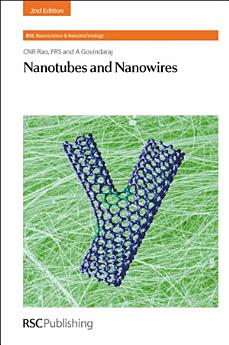Nanotubes and Nanowires: Edition 2
ഈ ഇ-ബുക്കിനെക്കുറിച്ച്
രചയിതാവിനെ കുറിച്ച്
C.N.R. Rao obtained his PhD degree from Purdue University and DSc degree from the University of Mysore. He is the Linus Pauling Research Professor and Honorary President of the Jawaharlal Nehru Centre for Advanced Scientific Research and Honorary Professor at the Indian Institute of Science (both at Bangalore). His research interests are mainly in the chemistry of materials (e.g. transition-metal oxides, open-framework structures, and nanomaterials). He has authored nearly 1700 research papers and edited or written 30 books in materials chemistry. A member of several academies including the Royal Society (London), US National Academy of Sciences, Japan Academy, French Academy of Sciences, and the Pontifical Academy of Sciences. He is the recipient of the Einstein Gold Medal by UNESCO, the Hughes Medal and the Royal Medal of the Royal Society, London and the Somiya Award of the International Union of Materials Research Societies (IUMRS). He received the Dan David Prize of materials research from Israel and is the first recipient of the India Science Prize. In 2010, he was awarded the August Wilhelm von Hoffmann medal by the German Chemical Society. He has received the Von Hippel Award of MRS (USA) and the highest civilian honour (Bharat Ratna) from the President of India.
A. Govindaraj obtained his MSc and PhD degrees from the University of Mysore. His main research interests are in fullerenes, nanowires and nanotubes in which areas he has published extensively. He is a Principal Research Scientist at the Indian Institute of Science.







